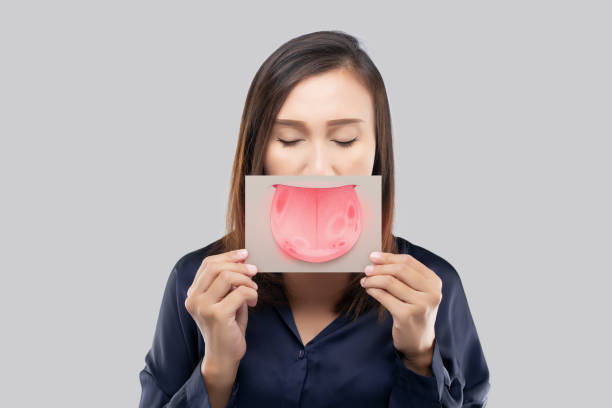Mouth ulcers, also known as canker sores, are small, painful lesions that form inside the mouth. They can be caused by a variety of factors, including stress, injury, and certain medical conditions.

Causes of Mouth Ulcers
The exact cause of mouth ulcers is not always clear, but they can be caused by the following:
-
Injury: Accidentally biting the inside of the cheek or lips, or brushing teeth too vigorously can cause mouth ulcers.
-
Stress: Stress can weaken the immune system, making it easier for mouth ulcers to develop.
-
Nutritional deficiencies: A deficiency in certain nutrients, such as vitamin B12, iron, and folic acid, can cause mouth ulcers.
-
Hormonal changes: Some women may develop mouth ulcers during their menstrual cycle.
-
Medical conditions: Certain medical conditions, such as celiac disease, Crohn's disease, and HIV/AIDS, can increase the risk of developing mouth ulcers.
Symptoms of Mouth Ulcers
The symptoms of mouth ulcers can vary, but they often include:
-
Pain: Mouth ulcers are typically painful, especially when eating or drinking.
-
Swelling: The area around the mouth ulcer may become swollen.
-
Redness: The area around the mouth ulcer may become red.
-
White or yellowish coating: The ulcer may have a white or yellowish coating.
Home Remedies for Mouth Ulcers

There are several home remedies that can help alleviate the pain and promote healing of mouth ulcers:
-
Saltwater rinse: Rinse your mouth with a mixture of warm water and salt several times a day.
-
Honey: Apply honey directly to the mouth ulcer to help reduce inflammation and promote healing.
-
Aloe vera: Apply aloe vera gel directly to the mouth ulcer to help reduce pain and promote healing.
-
Coconut oil: Apply coconut oil directly to the mouth ulcer to help reduce pain and promote healing.
-
Tea tree oil: Dilute tea tree oil with a carrier oil, such as coconut oil, and apply to the mouth ulcer.
-
Ice: Apply ice directly to the mouth ulcer to help reduce inflammation and numb the area.
-
Baking soda: Mix baking soda with a little water to form a paste and apply directly to the mouth ulcer.
When to See a Doctor
Most mouth ulcers will heal on their own within a few days or weeks. However, if you have a mouth ulcer that lasts for more than two weeks or is accompanied by other symptoms, such as fever or difficulty swallowing, you should see a doctor.
In conclusion, mouth ulcers can be caused by a variety of factors and can be painful and uncomfortable. Home remedies such as saltwater rinse, honey, aloe vera, coconut oil, tea tree oil, ice, and baking soda can help alleviate the pain and promote healing. If mouth ulcers persist for more than two weeks or are accompanied by other symptoms, you should see a doctor for further evaluation and treatment.
Treatments for Mouth Ulcers
Mouth ulcers, also known as canker sores, are painful, open sores that form in the mouth. They can be caused by a variety of factors, including stress, injury, certain foods, and a weakened immune system. While mouth ulcers can be uncomfortable and annoying, there are several treatments available that can help alleviate the symptoms.
Here are some common treatments for mouth ulcers:
-
Over-the-counter medications: Over-the-counter pain relievers, such as ibuprofen or acetaminophen, can help alleviate the pain and inflammation associated with mouth ulcers. There are also over-the-counter gels and creams specifically designed to treat mouth ulcers that can be applied directly to the sore.
-
Hydrogen peroxide rinse: Rinsing your mouth with a solution of hydrogen peroxide and water can help disinfect the sore and promote healing. However, it's important to dilute the hydrogen peroxide properly and not to swallow the mixture.
-
Avoiding certain foods: Certain foods, such as acidic or spicy foods, can irritate mouth ulcers and make them worse. Avoiding these foods can help alleviate the symptoms and promote healing.
In most cases, mouth ulcers will heal on their own within a week or two. However, if the sore is particularly large or painful, or if it doesn't heal within a few weeks, it's important to see a healthcare professional for further evaluation and treatment.
In conclusion, mouth ulcers can be painful and uncomfortable, but there are several treatments available that can help alleviate the symptoms. Over-the-counter medications, saltwater rinse, hydrogen peroxide rinse, baking soda paste, aloe vera, and avoiding certain foods can all help promote healing and reduce inflammation. If the sore doesn't heal within a few weeks or is particularly large or painful, it's important to seek medical attention.












